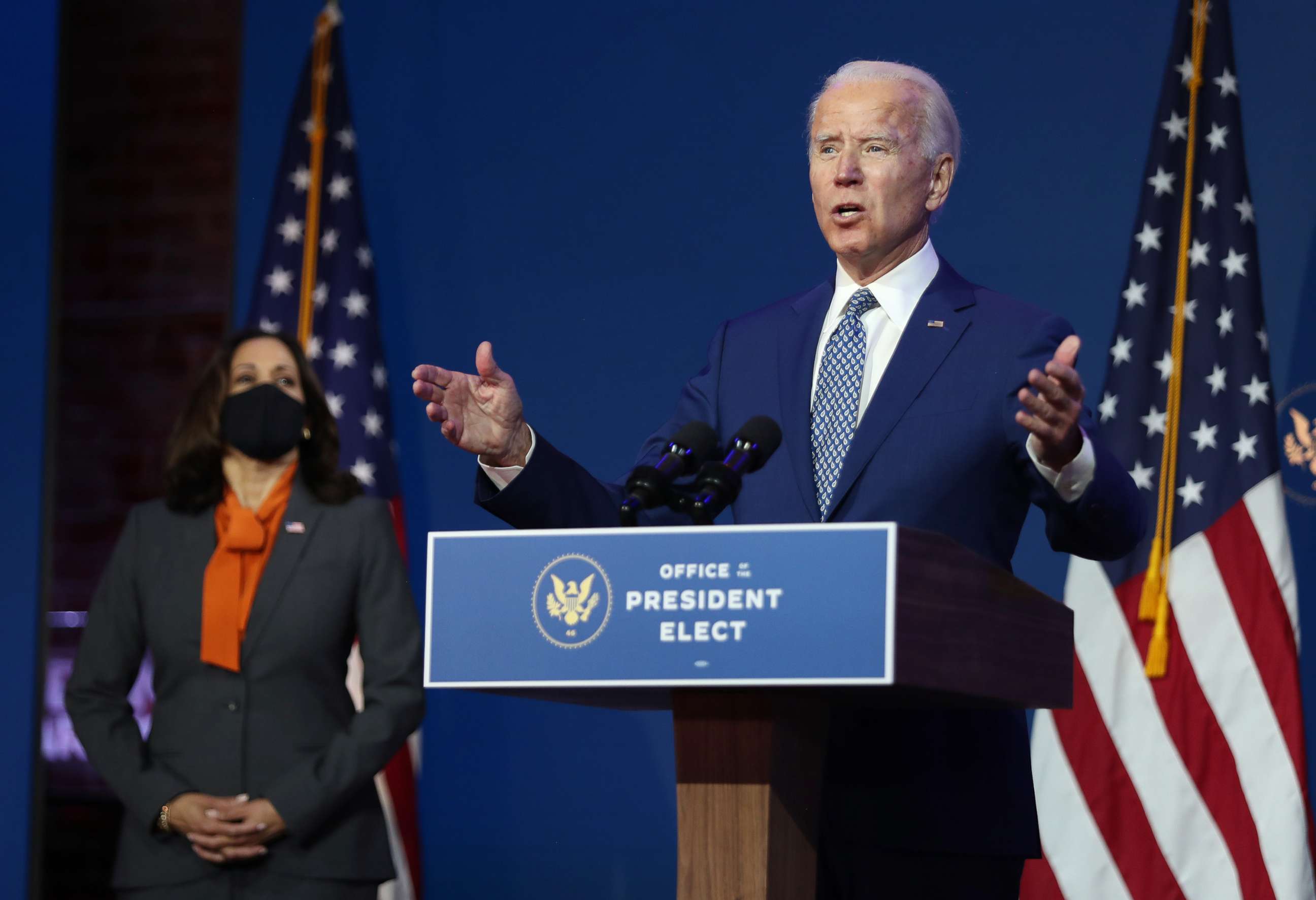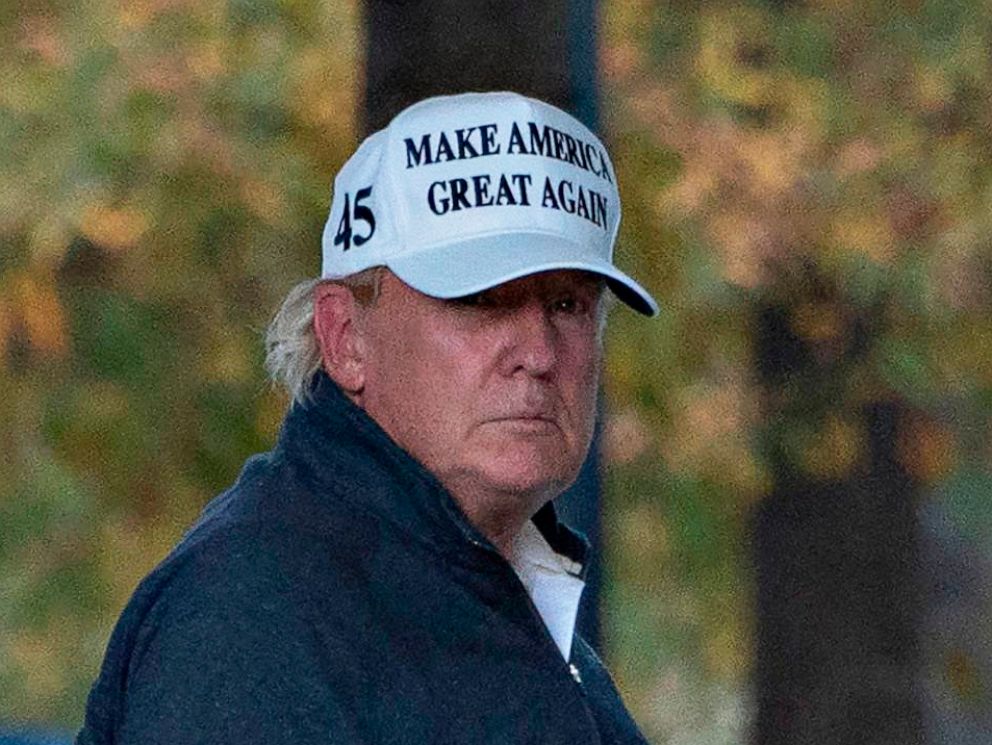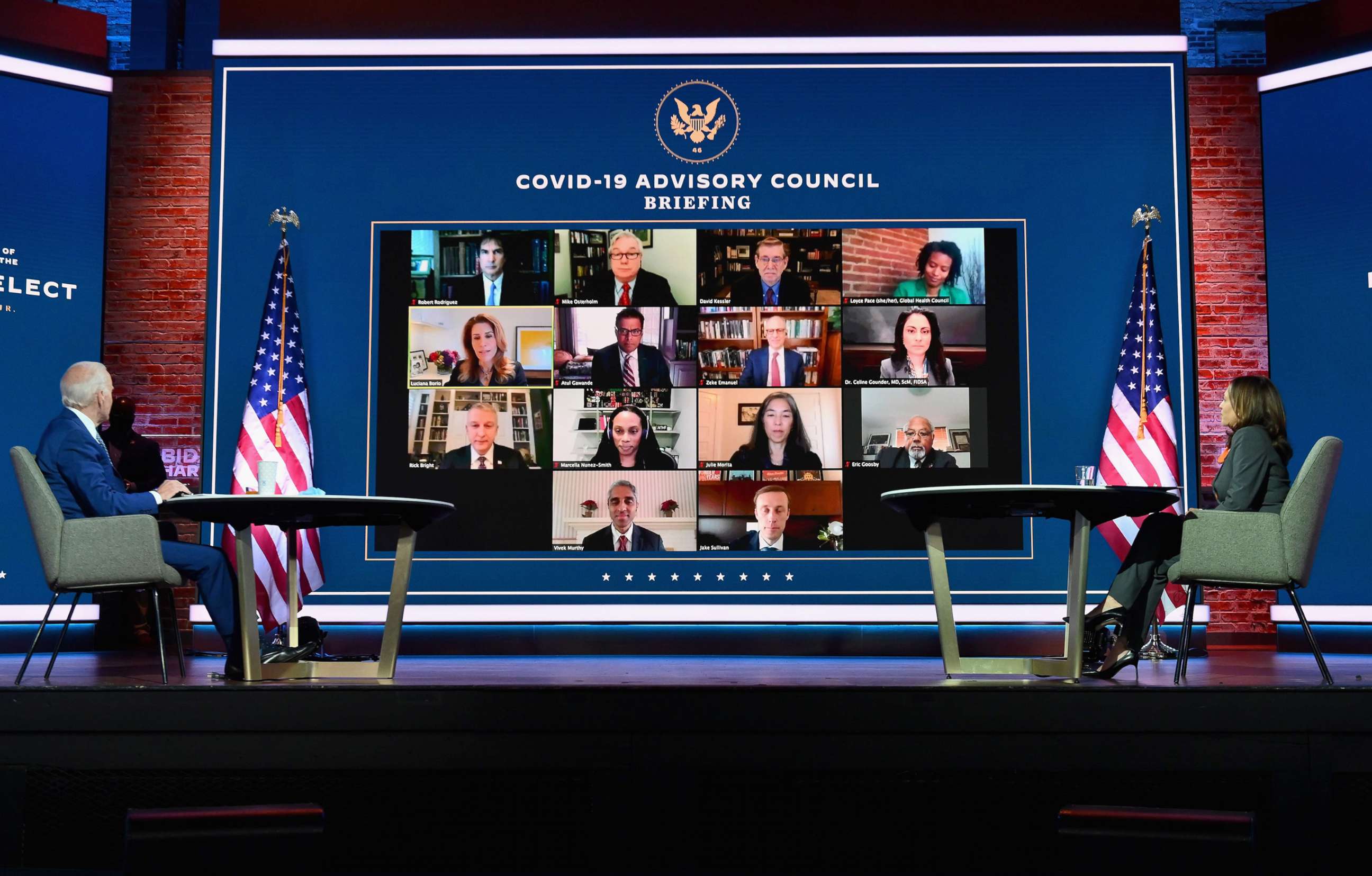Amid messy transition, Biden team hopes to fill gaps left by Trump administration COVID-19 response
Biden's COVID-19 team hopes for a stronger national response to the pandemic.
As the U.S. faces a stunning new wave of COVID-19 hospitalizations and persistent equipment shortages, public health experts are warning that post-election politics could add to the challenges this winter.
President Donald Trump remains focused on the outcome of the election and has scaled back his public appearances and schedule to almost nothing, rather than addressing the ongoing health crisis. His administration continues to block access of federal agencies to the incoming administration to get briefed by career staff on matters, including related to the vaccine and COVID-19.
Former Secretary of Health and Human Services Kathleen Sebelius, who said she is advising the incoming Biden administration, called the lack of access "shocking" and "life threatening."
"To have the situation in the middle of an unprecedented health crisis where government officials are blocking the incoming administration from access to eight key agencies from having the office space that they need to operate from having the finances to bring people on board and really get up and running, is just shocking, and it's actually life threatening at this point," she said in an interview with ABC News.
"Every day that's wasted is a day that we will pay for at the back end, because it will make it more difficult for the incoming administration to do what is their principal job which is to protect the American public," she added. "And in the middle of a health crisis to watch this kind of continued narrative that has no basis in fact or law but continues to be all about Donald Trump is just shocking."

Public health experts in the administration issued warnings for weeks leading up to the election that colder weather could lead to surges in case numbers as people spend more time inside where the coronavirus is more likely to spread, potentially socializing or dining indoors.
According to Johns Hopkins University, the U.S. has surpassed 10 million cases and an estimated 240,000 people have died since January as a result of the virus. Hospitals across the country are again reporting shortages of space for patients and personal protective equipment, or PPE, to protect health care workers.
Texas became the first state to record more than 1 million cases of COVID-19 on Wednesday, with California on track to be the second.
And despite the promising data from Pfizer on its vaccine candidate, public health experts said it is still critically important to observe public health measures and get case numbers down in the months before a vaccine will be widely available.
But until Trump concedes the election or an administrative agency determines that Biden is the winner, the incoming administration can't get up to speed or start planning its approach to the pandemic response.

The White House Coronavirus Task Force has mostly languished in recent months, meeting sporadically and without engagement fromTrump. Its most recent meeting was Monday -- after a three-week hiatus -- to discuss promising vaccine results, with a maskless Vice President Mike Pence tweeting photos of himself at the head of the table.
Also missing from the picture is any engagement with the public from the White House podium, including nationally televised press briefings with Drs. Anthony Fauci and Deborah Birx, who are the government's premiere experts on the subject. The New England Journal of Medicine, one of the most highly respected medical journals, has even condemned the country's "leadership vacuum" during the pandemic. Both Fauci and Birx attended the task force meeting on Monday and have spoken in interviews and other events, but not as part of a national message from the White House about what's being done to end the pandemic.
Administration officials working on the pandemic response and preparing for distribution of a vaccine continue to insist their efforts are ongoing despite the post-election drama. Adm. Brett Giroir, who oversees the Trump administration's coronavirus testing efforts, told reporters earlier this week he doesn't think the Biden team has come up with anything the federal government could do more to improve testing, for example.
"I haven't seen anything in the testing strategy, quite honestly that we are not already doing," he said on a call with reporters.
Anand Parekh, the Bipartisan Policy Center's chief medical adviser, predicted that by Jan. 20 the nation could be in even worse shape if more isn't done now to stop the spread of the virus.
He said the biggest step any administration can do is deliver a science-based message to the American public based on the realities on the ground. Americans should know that the health care system can't care for everyone at once, so masks and social distancing are the best way to avoid future lockdowns, he said.
Parekh also said more could be done to lay out a clear nationwide testing strategy that would tell local officials "when do we use which test on which population."
"The numbers don't look good, and unfortunately it's going to get worse before it gets better, … Actions have to be taken now to avoid that situation," he said.
Sebelius agreed that Biden's COVID-19 task force can communicate the message about complying with public health measures and form relationships with governors who feel abandoned by the lack of a national pandemic response.

Sebelius was the governor of Kansas before she was nominated to HHS by President Barack Obama and said governors have largely been told they were on their own during the pandemic response.
"That has not happened in eight months in the United States and we're paying a high price for that with the number of deaths and the number of hospitalizations soaring once again," she said.
"So, communication is really part of the strategy but certainly establishing a framework for all the things that the federal government can and should be doing what they will be doing, how they will do it. And those personal relationships as governors I think can go on very, very quickly," she added.
Fauci has said the experts on the Biden task force are subject-matter experts he respects and has worked with frequently over the years. One task force member, Celine Gounder, even interviewed him on her podcast about the COVID-19 epidemic.
Biden's task force includes multiple experts who have worked on public health emergencies at federal agencies like the FDA, CDC and the State Department, signaling they could prioritize restoring trust in those agencies that has faltered amid President Donald Trump's public contradictions and pressure on agency heads.
Members of the task force have been sharply critical of the Trump administration's response to the pandemic, blaming a lack of strong federal leadership and messaging for the lack of control over case numbers across the country. Multiple members have said they support a national mask mandate and decisions led by science and expert voices.




